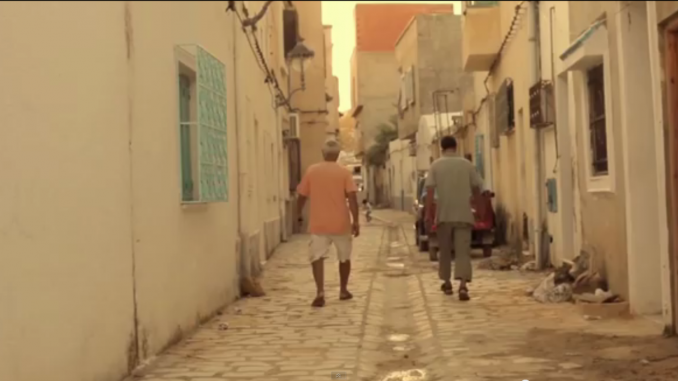
Boat, my love, take me out of this misery! In my land I feel choking, I can’t stand it anymore, je n’ai marre (Reda Taliani, “Partir Loin“)
What happened to these young men that were so celebrated in 2011, the main actors of the so-called ‘arab springs’? In recent years we only hear news about politicians, leaders, terrorists… but what about normal people, where have they been? The answer is simple: in their neighborhoods. In Hay Hlil, in Oukacha, in Hezbet el Haggana, where there is the same anger and frustration that there was before the protests. An important part of the music that has been produced since then, is focused on this key concept of “El Haouma” (Lhuma, L7uma, El Huma…); with it they are trying to transmit to the world outside what it is to live in ghettos with invisible walls, where everything conveys the message that you can’t escape, neither to the rest of the world, nor to the rest of the city, and that you have to wait for better days.
- Hamzaoui Med Amine – Kafon, authors of the most popular rap-dub song in Tunis after the revolution: Houmani (‘boy of the neighborhood’). here there is an article about this song, and about the video, which was shot with 125 euros in the neighborhood of Ariana (Tunis). Kafon few months after the song was published was arrested during one year for hash consumption.
- El-Asheb (Las7eb), Moroccan songwriter “Boys of the neighborhood” (Wled el7ouma): also in Morocco, a rapper known as El Haqed was arrested in 2012 for the lyrics of his songs. His neighborhood, Oukacha in Casablanca, has the same name of the prison, and El Haqed calls it ‘an open air prison’.
- Mafia Banlieue, rap group from Tunis, “Wled el7ouma” (same title, ‘boys of the neighborhood’) :: Balti “Wled el houma“
- Ted Swedenburg, “Egypt’s music of protest, from Sayyid Darwish to Dj Haha” in Middle East Research and Information Project, winter 2012. And also “Messages from paradise: Egypt-Austria“, short video by anthropologist Samuli Schielke, part of a project on diaspora and the images of Europe in Egypt.